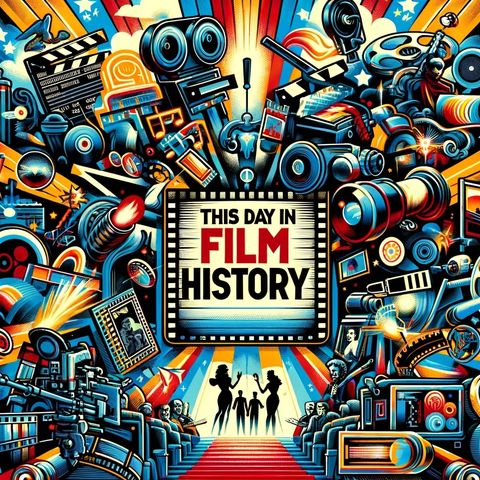
Contactos
Información
Film History Daily is your daily dose of cinematic nostalgia and fascinating Hollywood lore. Each episode delves into the significant events, groundbreaking releases, and iconic moments that occurred in the...
mostra másEach episode delves into the significant events, groundbreaking releases, and iconic moments that occurred in the world of cinema. From the birth of legendary actors and directors to the premieres of classic films that shaped the industry, "
Perfect for film buffs, casual moviegoers, and anyone who loves a good story,
Tune in every day for your fix of Hollywood glamour, cinematic milestones, and the incredible moments that made film history.
For more info check out https://www.quietperiodplease.com/

Film History Daily is your daily dose of cinematic nostalgia and fascinating Hollywood lore. Each episode delves into the significant events, groundbreaking releases, and iconic moments that occurred in the...
mostra másEach episode delves into the significant events, groundbreaking releases, and iconic moments that occurred in the world of cinema. From the birth of legendary actors and directors to the premieres of classic films that shaped the industry, "
Perfect for film buffs, casual moviegoers, and anyone who loves a good story,
Tune in every day for your fix of Hollywood glamour, cinematic milestones, and the incredible moments that made film history.
For more info check out https://www.quietperiodplease.com/
Información
| Autor | QP-3 |
| Organización | William Corbin |
| Categorías | Historia , Historia del cine , Cine y Televisión |
| Página web | - |
| corboo@mac.com |
Copyright 2024 - Spreaker Inc. an iHeartMedia Company
